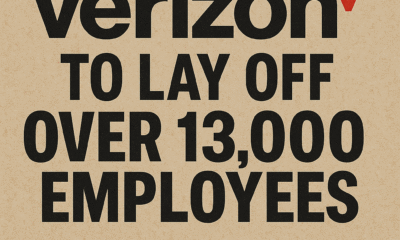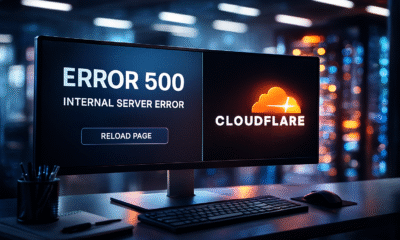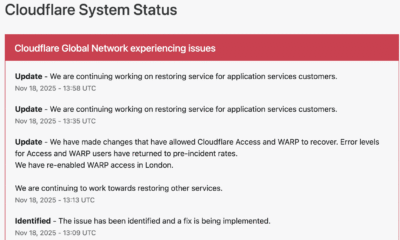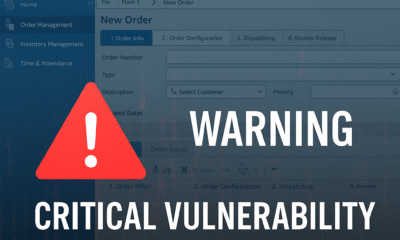REGIONS
Tragedy on New Year’s Eve: Two Young Boys Shot in Escondido

Escondido, CA — A joyous New Year’s Eve turned tragic in Escondido as two young boys were shot in what authorities are calling a senseless act of violence. The incident occurred late Sunday night, sending shockwaves through the close-knit community.
Details of the Incident
Escondido Police Department reported that the shooting took place near a residential neighborhood around 10:30 PM. Officers responding to 911 calls found the two boys, aged 10 and 12, with gunshot wounds. Both were transported to a local hospital, where one remains in critical condition while the other is stable.
Investigators believe the boys were caught in the crossfire of a dispute between unidentified individuals. “This is an unacceptable tragedy. Two innocent lives have been forever changed because of reckless violence,” said Escondido Police Chief Ed Varso during a press briefing.
Community Reaction
Residents expressed shock and grief over the incident, which occurred as families gathered to celebrate the new year. “It’s heartbreaking,” said Maria Lopez, a neighbor. “This is supposed to be a time of joy and celebration, not mourning.”
Local officials have condemned the violence and urged the public to come forward with any information that could lead to the arrest of those responsible.
Investigation Underway
Police are actively investigating the incident and reviewing surveillance footage from the area. No arrests have been made, but authorities are pursuing multiple leads. The motive for the shooting remains unclear, but officials are treating it as a high-priority case.
“We are committed to finding the individuals responsible and holding them accountable,” said Chief Varso. “Our department will not rest until justice is served.”
Support for the Families
The Escondido community has rallied around the families of the victims, with local organizations and churches offering support. A candlelight vigil is planned for later this week to honor the boys and stand against violence in the community.
Call to Action
Escondido authorities are calling on anyone with information to contact the police hotline. Tips can be submitted anonymously through the department’s crime-solving app or local Crime Stoppers.
A Sobering Start to 2025
The shooting has cast a somber shadow over the New Year’s festivities, prompting renewed discussions about gun violence and community safety. Local leaders are urging residents to remain vigilant and to work together to prevent further tragedies.
“Our hearts go out to the victims and their families,” said Mayor Dane White. “This is not the way we wanted to begin the year, but we will come together as a community to heal and to ensure this never happens again.”
education
Campus in Crisis: UWA Faces Disruption After Major Password Compromise

- Perth, Australia – August 11, 2025 – The University of Western Australia (UWA), one of the nation’s leading research institutions, is grappling with a significant cybersecurity incident that has exposed the password information of thousands of staff and students, leading to a widespread system lockout. The breach, detected over the weekend, underscores the growing vulnerabilities faced by educational institutions in an increasingly digital landscape.
- Timeline and Discovery of the Breach
The unauthorized access was first identified on Saturday, August 9, 2025, through UWA’s security monitoring systems, which flagged suspicious activity targeting the university’s authentication infrastructure. This prompt detection allowed the university to activate its critical incident management team immediately, initiating countermeasures to contain the threat. By Sunday, all affected systems were locked down, preventing further access and requiring mandatory password resets for all users.
UWA’s chief information officer, Fiona Bishop, described the investigative process as akin to “following footprints in the sand,” emphasizing the meticulous tracing of the intruders’ digital trail. While the exact method of entry—such as potential phishing, exploited vulnerabilities, or insider threats—has not been publicly disclosed, officials confirmed the breach centered on unauthorized entry into password databases. There is no evidence suggesting ransomware involvement or that the attackers have made any demands.
What Was Compromised and Immediate Impacts
The breach specifically compromised password information, affecting an estimated thousands of current staff, students, and even visitors with university accounts. University officials have repeatedly stated that there is no indication other sensitive data, such as personal financial details, medical records, or academic transcripts, was accessed. However, the exposure of passwords alone poses risks, including potential unauthorized logins to linked services if users reused credentials elsewhere.
As a precautionary measure, UWA implemented a full system lockout, leaving staff and students unable to access email, learning platforms, research tools, and administrative systems until passwords are reset. This disruption has caused inconvenience, particularly for those in the midst of assessments or research deadlines. To mitigate academic impacts, the university granted a three-day extension for all student submissions. Classes and teaching activities are continuing as normal, with no reported interruptions to in-person operations.
University’s Response and Support Measures
UWA’s IT teams and digital experts worked around the clock over the weekend to secure the systems, reset passwords, and transition to recovery mode. Bishop praised the “exceptionally pleased” responsiveness of her teams, highlighting their tireless efforts to restore access swiftly.
In an official notice posted on the university’s website, UWA urged all affected individuals to reset their passwords immediately, providing step-by-step guidelines and contact details for support. The IT Service Desk, reachable at +61 8 6488 1234, is assisting users encountering difficulties. The university apologized for the disruption and emphasized that the incident is being treated as its “highest priority,” with ongoing investigations to determine the full scope and prevent recurrence.
Bishop noted in statements to media that universities like UWA are “powerhouses of information and learning,” making them prime targets for cybercriminals, especially as they modernize digitally. She committed to enhancing cybersecurity measures moving forward, aligning with broader sector trends to combat escalating threats.
Broader Context and Ongoing Investigation
This incident marks another challenge for UWA, which has faced data breaches in the past, including a 2022 hack that exposed student personal details and led to charges against a perpetrator. It also reflects a troubling pattern in Australia’s higher education sector, with similar breaches reported at institutions like Western Sydney University earlier this year.
The investigation remains active, with UWA pledging transparency as more details emerge. Cybersecurity experts warn that such attacks could disrupt academic operations, research, and administrative functions if not addressed promptly. Students and staff are advised to monitor their accounts for unusual activity and adopt stronger password practices.
UWA, ranked 77th globally in the QS World University Rankings 2025 and serving over 25,000 students, continues to prioritize recovery while reinforcing its commitment to data security.
For the latest updates, affected parties are encouraged to visit the university’s official website.
International
Espionage in the Maghreb: Algerian-Spanish Deal to Counter Morocco Unearthed

A declassified French intelligence telegram reveals covert cooperation between Algiers and Madrid in the tense months following Algerian independence—raising new questions about Cold War geopolitics in North Africa.
In the volatile aftermath of Algeria’s independence, when borders were still fragile and allegiances uncertain, a single telegram has surfaced to reignite a decades-old rivalry. Dated September 19, 1962, and issued by French intelligence, the leaked document alleges that Algerian and Spanish military operatives collaborated in a clandestine effort to counter Morocco’s regional influence—using encrypted radios and shared surveillance near the border.
The Document and Its Claims
The telegram—classified at the time and only recently leaked—describes a meeting between an Algerian military lieutenant and Spanish intelligence counterparts. According to the report, the lieutenant proposed:
- Establishing encrypted radio communications between Algerian and Spanish outposts.
- Exchanging intelligence on Moroccan troop movements and logistical patterns in border regions.
- Coordinating surveillance patrols near contested areas to monitor Moroccan activities.
While the telegram does not specify whether the proposals were fully implemented, it signals a remarkable alignment between two governments whose official ties were limited at the time.
Geopolitical Context
The events took place just months after Algeria’s independence from France in July 1962, a period marked by uncertainty, shifting alliances, and unresolved border disputes with Morocco. The Sand War, a short but intense armed conflict between Morocco and Algeria, would erupt barely a year later in 1963—making this intelligence link a possible precursor to the hostilities.
For Spain, still under Francisco Franco’s authoritarian rule, North Africa remained a strategic priority. Madrid maintained enclaves such as Ceuta and Melilla and was deeply wary of Moroccan territorial claims.
Expert Analysis
Dr. Rachid Belkacem, a historian of Maghreb geopolitics, notes that the telegram fits within a broader pattern of Cold War maneuvering in North Africa:
“Spain sought to hedge against Moroccan influence, while Algeria, still consolidating its independence, welcomed partners who could offer intelligence and logistical support. This kind of cooperation, even if informal, shows how Cold War politics played out through regional rivalries.”
Human Impact and Legacy
The alleged pact adds a historical layer to the enduring mistrust between Morocco and Algeria, whose diplomatic ties have been periodically strained for decades. For border communities, such covert activities often translated into heightened military presence, restricted movement, and economic disruptions—effects still remembered by older residents today.
Why It Matters Now
The release of this document comes amid renewed tensions between Rabat and Algiers over Western Sahara, airspace closures, and security alliances. While the Cold War is over, the patterns of intelligence cooperation, proxy maneuvering, and alliance-building persist in different forms.
Conclusion:
The September 1962 French telegram offers a rare glimpse into the undercurrents of early post-colonial North African politics. Whether the Algerian-Spanish pact was a short-lived tactical experiment or part of a longer intelligence strategy, its existence reinforces how fragile borders and geopolitical ambition can shape decades of rivalry.
International
Sam Altman: Artificial Intelligence Will Soon Make Truth Unrecognizable

OpenAI’s chief, Sam Altman, warns that artificial intelligence could soon unleash an era of “information chaos,” threatening trust, truth, and global cybersecurity stability.
Society Is Not Ready: Altman Warns of AI-Driven Fraud Crisis
By an International Correspondent
In a chilling assessment of what lies ahead, OpenAI CEO Sam Altman has cautioned that society is on the brink of a sweeping fraud crisis driven by artificial intelligence. Speaking candidly at a recent technology forum, Altman said the power of AI to replicate human voices, images, and writing has surpassed all previous expectations—posing one of the greatest threats to truth and trust in the digital era.
“We’re heading into a world where you won’t be able to believe anything you see or hear online,” Altman warned. “We’re not ready. Society is never ready for these disruptions, and the window to prepare is closing fast.”
Altman’s remarks come at a time when deepfake technology, synthetic media, and generative AI tools like ChatGPT and DALL·E are becoming increasingly accessible. Experts fear these tools could be weaponized by scammers, foreign intelligence, or rogue actors to impersonate individuals, forge official communications, and erode the very fabric of digital credibility.
The Age of Synthetic Deception
What was once a dystopian warning has now become a technical reality. AI-generated audio can perfectly mimic voices after just a few seconds of sample input. Image generators can fabricate realistic photographs of people who don’t exist. Text-based AI systems can compose emails, fake legal notices, and generate social media posts that are indistinguishable from human writing.
According to cybersecurity experts, this convergence of technologies creates fertile ground for identity fraud, phishing campaigns, political manipulation, and fake news proliferation on a scale never before imagined.
“We are looking at a new era of fraud—one that’s automated, convincing, and almost impossible to trace in real-time,” said Nina Schick, a deepfake researcher and author of “Deepfakes: The Coming Infocalypse.”
Crisis of Trust in the Digital Age
Altman emphasized that one of AI’s most dangerous side effects will be the erosion of societal trust. In an online environment where anyone can be impersonated, and anything can be faked, public confidence in digital communications—and even democratic institutions—could collapse.
“It’s not just about individual scams,” Altman added. “It’s about the larger implications of not knowing what to believe. That’s a foundational threat.”
Already, reports of AI-powered fraud are increasing. In one 2023 case, a Hong Kong-based firm lost $25 million after a scammer used AI to replicate a CFO’s voice in a video call. In another, fake AI-generated images of global leaders triggered international tensions before being debunked.
Calls for Urgent Regulation and Public Awareness
Altman called for urgent global cooperation to establish ethical and technical guardrails before AI-generated fraud becomes uncontainable. He also urged tech leaders, lawmakers, and civil society to invest in authentication technologies, digital literacy, and watermarking systems to verify real content.
“The future isn’t written yet,” Altman said. “But we must act now—because if trust goes, everything goes.”
As the world races to embrace AI’s promise, Altman’s warning underscores a growing dilemma: how to harness the power of AI while protecting humanity from its darkest potentials.
Source:
Remarks by Sam Altman, CEO of OpenAI, as reported by The Guardian, Time, and OpenAI.com.














